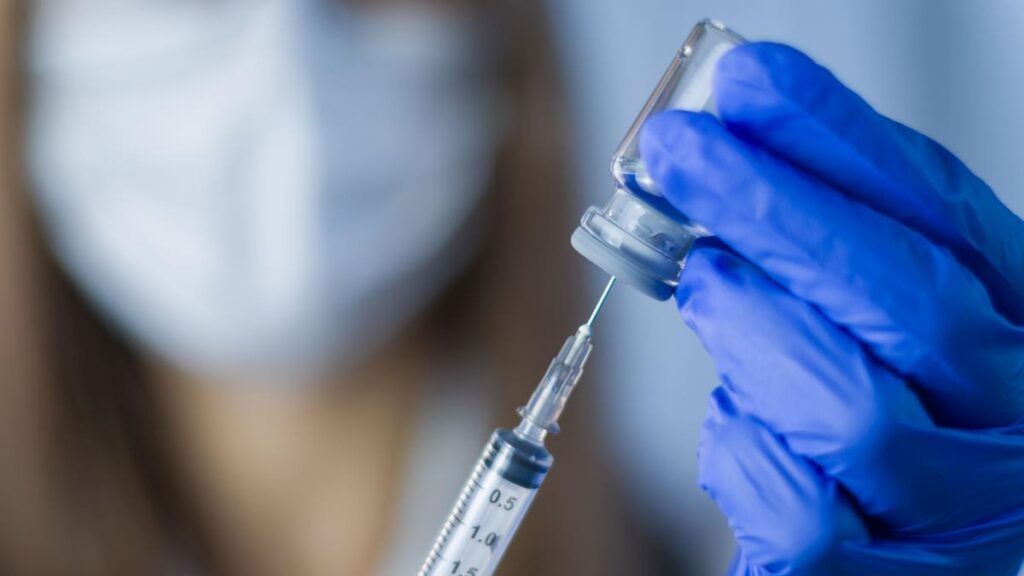Topline
The Food and Drug Administration on Monday approved Pfizer’s RSV vaccine to protect infants by vaccinating pregnant parents, becoming the first maternal shot to reach market and offering hope of protecting babies from the ubiquitous and sometimes lethal respiratory infection as shots for adult shots are rolled out for the first time this fall.
The FDA approved Pfizer’s RSV vaccine to protect infants Monday.
Key Facts
The FDA authorized Pfizer’s shot to protect infants from lower respiratory tract infection and severe disease from respiratory syncytial virus, often known as just RSV, from the time of their birth up to six months of age.
RSV is a common respiratory infection that ordinarily causes mild, cold-like illness in healthy adults but can cause serious, potentially fatal, disease in older adults, infants and people with underlying medical issues like compromised immune systems.
Evidence from Pfizer’s late stage clinical trial of around 7,400 people indicate the vaccine, given as a single dose in the late second or third trimester, was 82% effective against severe RSV disease for the first three months after birth and 69% in the first six months.
The vaccine, marketed as Abrysvo, was also 51% effective at preventing doctor’s visits for RSV-related illness within the first six months of life, Pfizer’s trial found.
Abrysvo is the first maternal vaccine approved in the U.S. to protect infants from birth and through the first months of life.
Annaliesa Anderson, senior vice president and chief scientific officer for vaccine research and development at Pfizer, said the shot’s approval “marks a significant milestone for the scientific community and for public health.”
What To Watch For
FDA approval is an important and necessary step towards rolling out the vaccine and the Centers for Disease Control and Prevention (CDC) will now determine who should receive the shot and under what circumstances. There are some matters CDC advisors are likely to consider closely. While an independent panel of experts in May voted unanimously to recommend the FDA approve Abrysvo to protect infants based on the shot’s effectiveness, some experts—four of 14 on the committee—the panel was split when it came to the shot’s safety. Four of the 14 advisors voted against recommending the shot for approval on safety grounds. The majority deemed vaccine safety data “generally favorable,” with relatively standard side effects reported like injection site pain, muscle pain and headaches, but a slightly higher rate of preterm births concerned dissenters.
What We Don’t Know
Precisely how and when the shot will be rolled out is not yet clear. A great deal will hinge on the recommendations of the CDC’s vaccine committee, as well as Pfizer’s ability to produce and distribute shots. Pfizer’s maternal shots have the same formulation and dosing as the authorized adult vaccine. A Pfizer spokesperson told Forbes the company has already been manufacturing the vaccine in advance of potential approvals and ahead of the 2023/2024 RSV season.
Key Background
While an RSV infection is a minor inconvenience for most healthy adults, infection is a major health threat to newborns and infants and it is a leading cause of hospitalization in young infants. The infection is ubiquitous—almost all people will have been infected by the time they are two years old—and responsible for around 100 to 300 deaths and around 58,000-80,000 hospitalizations in children younger than 5 years old each year in the U.S., according to the CDC. Young infants are especially vulnerable to the infection due to the size of their airways, which can be easily blocked by the inflammation triggered by the virus, the fact they have not faced the virus before and the state of their immune systems, which are immature and cannot mount a strong immune response to counter the infection. The immaturity of the newborn immune system also explains why the vaccine is delivered to pregnant people, as they pass protective maternal antibodies down to the baby that persist during the first few months of life and can help it fight off the virus. Pfizer’s shot has also been authorized for use in older adults in the U.S., just the second for this age group after the FDA approved a product from pharma firm GSK in early May. RSV causes an estimated 14,000 deaths and 160,000 hospitalizations in adults 65 and over each year in the U.S.
Tangent
The CDC advisory committee unanimously recommended the use of a preventative RSV therapy for babies produced by AstraZeneca and Sanofi in early August, following its FDA approval in July. . The therapy, branded as Beyfortus, protects against infection and severe disease in a similar manner to a vaccine but rather than training the body to mount its own antibody response to RSV it delivers protective antibodies directly. It is expected to be available for the upcoming RSV season.
Further Reading
RSV Vaccine: FDA Advisors Recommend Pfizer Shot To Protect Infants From Infection—Here’s What To Know (Forbes)
FDA Approves Pfizer’s RSV Vaccine For Older Adults—It Could Be Available This Fall (Forbes)
First RSV Vaccine For Infants Approved By CDC And FDA: Other Top Vaccines And Their Effectiveness (Forbes)


